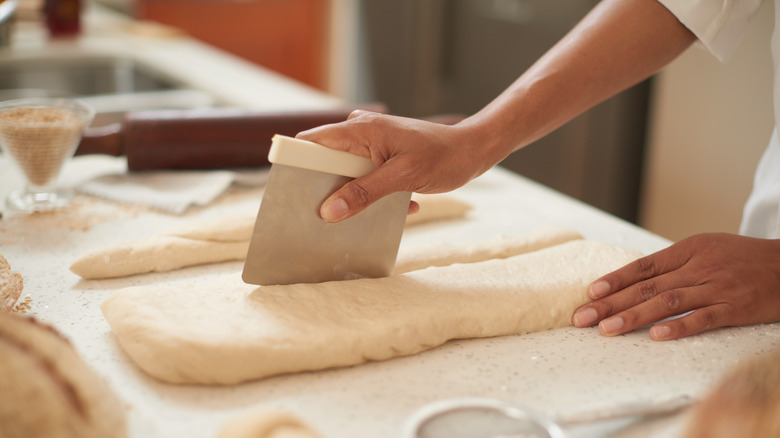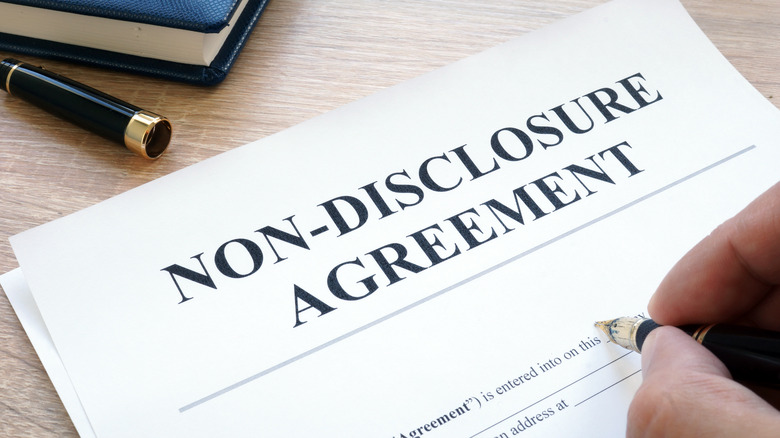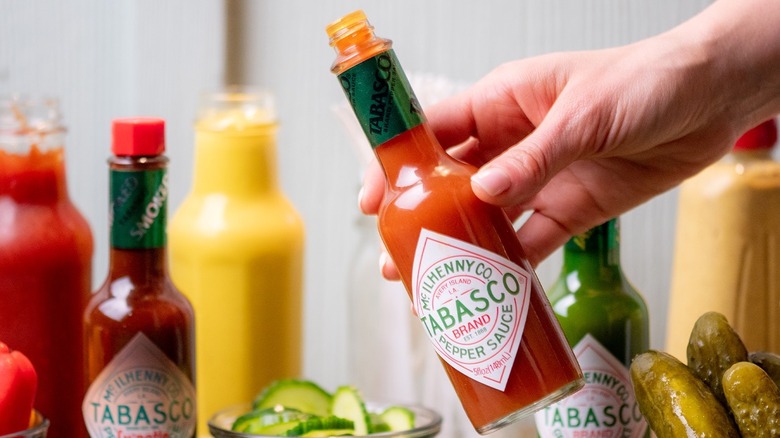Can Chefs Legally Have Secret Ingredients In Their Recipes?
Plenty of curious food lovers have experienced a version of the following scenario: You're savoring the last bites of a delectable dish at a restaurant, and when you beckon your server over to ask what's in it, they give a little wink and tell you it's the chef's secret recipe. In many cases, they're being totally serious. Two methods of recipe protection exist for chefs and food companies who wish to do everything in their power to prevent folks at home — or worse, other restaurants — from mimicking the cheesecake recipe their great-grandmother whispered on her deathbed.
The first recourse is keeping a tight lip and billing the recipe as a "trade secret." The second, which requires more paperwork, is to apply for a patent from the U.S. Patent and Trademark Office. While these options are a chef's best bet for protecting recipes, the cat sometimes still gets out of the bag. Here's how the recipe-protection process works — and what happens when it doesn't.
How a recipe becomes a trade secret
Keeping a trade secret might sound official, but it's more of a high-tech handshake sealed by a nondisclosure agreement. In other words, companies choosing this option are responsible for protecting their precious secrets.
A brand that's done so successfully for decades is Coca-Cola, which only shares its recipe with two senior executives at a time. Coke doesn't even release the names or positions of the in-the-know execs to the public. The original written formula is locked away in an imposing steel vault, and even the trusted duo who can access it have to go through a palm scanner and a pin pad.
Unfortunately, this method isn't foolproof. Some companies, even ones that have invested in vaults with enormous doors, have found it unsuccessful. Take McDonald's, which inadvertently spilled the beans about the ingredients of its Big Mac Sauce when it shared a video on social of it being made, resulting in the loss of the sauce's trade-secret status.
Patent, please
Since a nondisclosure agreement is a civil contract, the consequences for breaking one if you reveal a trade secret might not involve a court appearance unless the violator is sued by the company they signed with. As such, food brands that want extra protection under the law can apply for an official patent, making it harder for outsiders to steal their recipes.
This process can take quite a while, so you might see some products in the grocery store with a "patent pending" label. One reason for this lengthy journey might come down to the tricky game of semantics. If a patent isn't water-tight, other companies might find ways to sell similar products without legal ramifications.
Sadly, patents are only available for legitimate businesses. For now, home cooks will have to rely on the good word of their relatives if they want to safeguard their secret family recipes.


